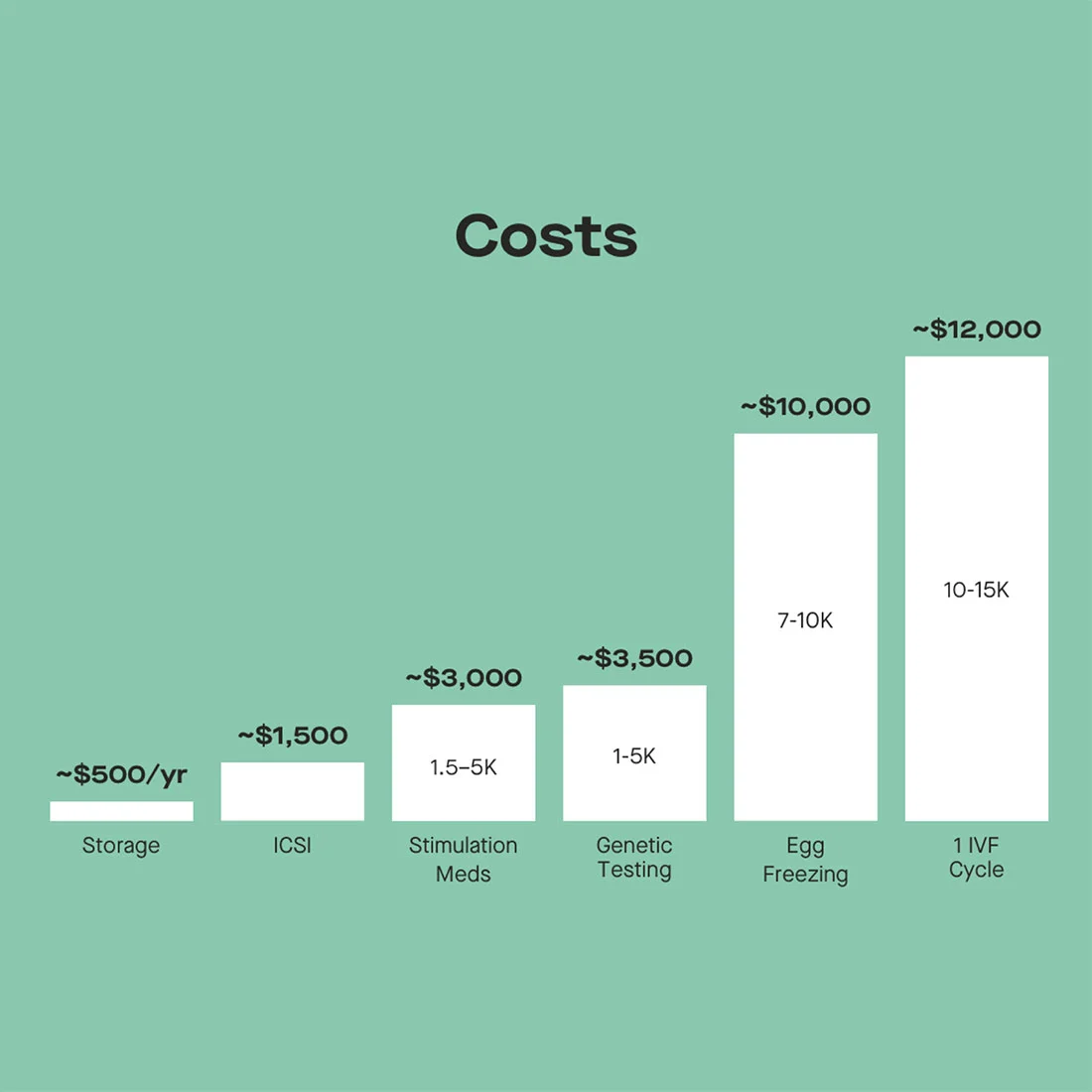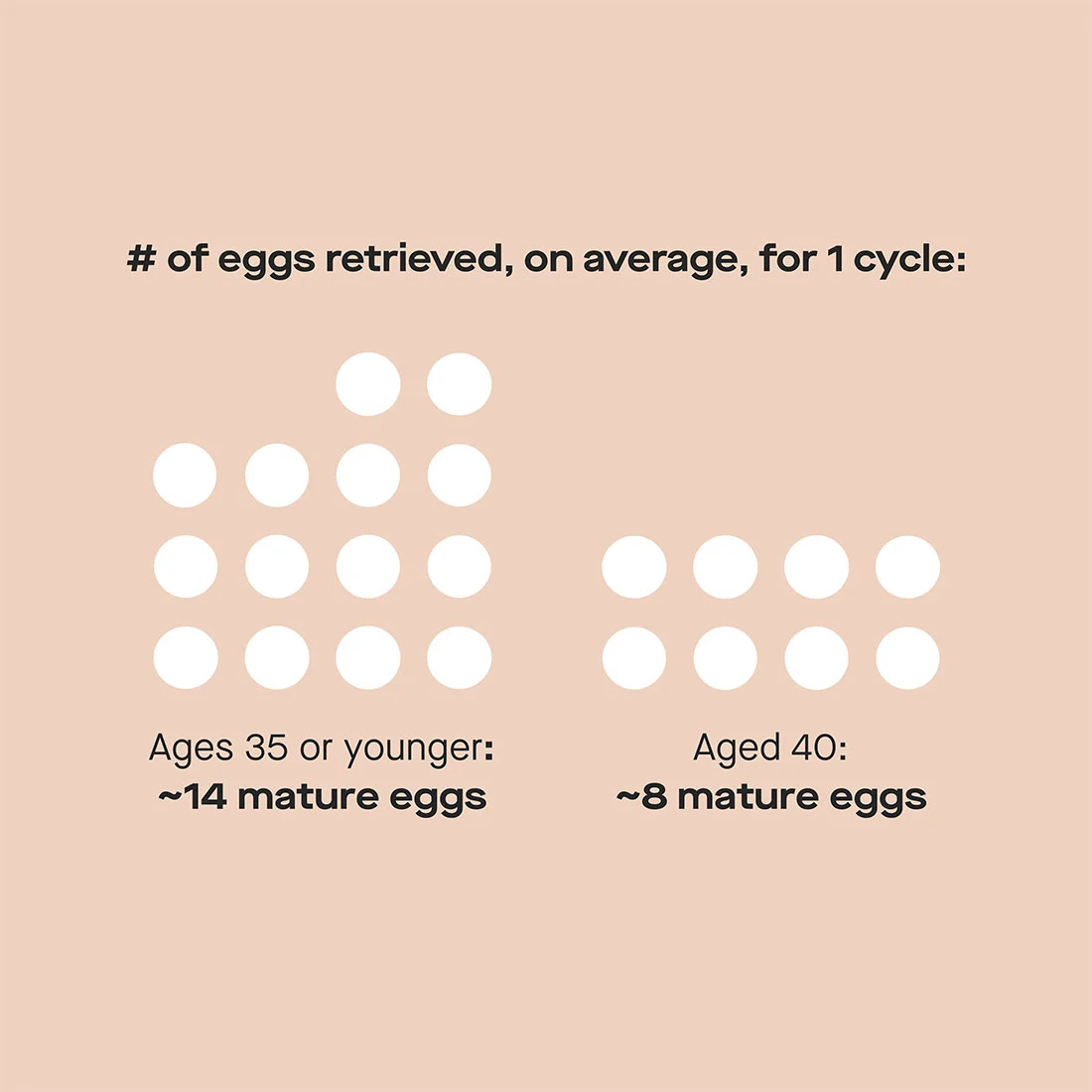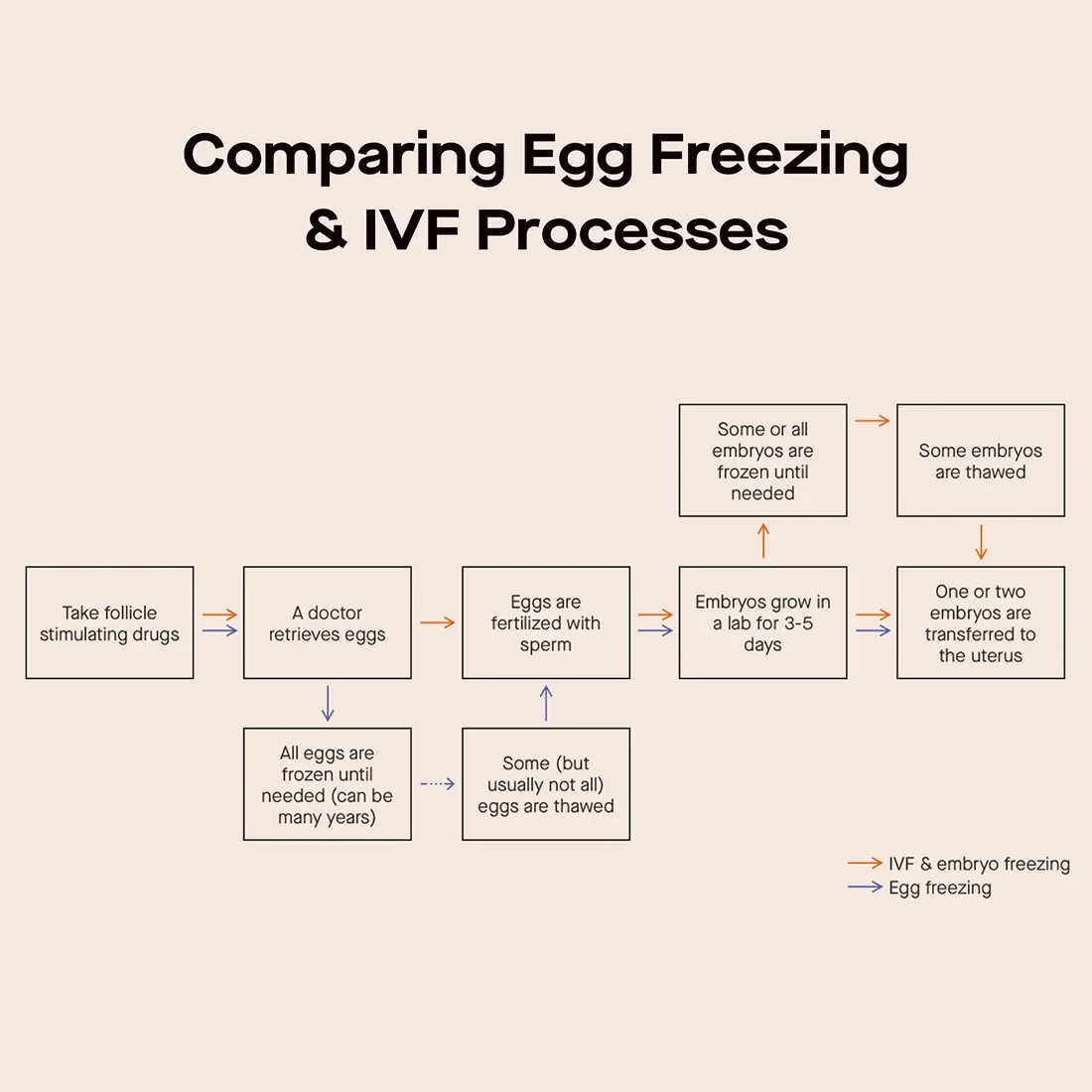Here's what we'll cover
Here's what we'll cover
Here's what we'll cover
Egg freezing can’t guarantee a future pregnancy, but it does give you more options down the road by preserving the quantity and quality of your eggs today. Here’s what you need to know about the process.
How much does egg freezing cost?
What you can expect to pay for egg freezing depends on several important factors:
What your insurance plan covers
How many rounds of egg retrieval you have done
How long you store your frozen eggs
What you plan on doing with your eggs once they’re thawed
On average, according to FertilityIQ, the entire procedure, including an average of around 2 rounds of extraction followed by storage, costs between $30,000-$40,000.
Other factors, like where you live and your age when you start the retrieval process can also have significant impacts on the cost.
If you’re thinking about freezing your eggs, an important first step is to understand if you may have the same number or fewer eggs than the average person your age, which can be evaluated using a simple blood test called AMH, or anti-Mullerian hormone (more on that below!) and discuss your results with a fertility specialist.

Cost of egg freezing
How might egg-freezing costs change over time?
Because the number of eggs you have diminishes as you age, you may need more rounds of egg retrieval to get enough viable embryos for procedures like in-vitro fertilization (IVF).
That said, everyone’s fertility curve is unique. Annual fertility hormone testing (including AMH levels) will give you a better idea of your rate of ovarian reserve decline — and, with Modern Fertility, you’ll get a recommended testing cadence based on your results.

Eggs retrieved changes by age
What does the egg-freezing process look like?
There are four major steps you can expect as part of the process:
Consultation: You’ll visit with a undergo a reproductive endocrinologist (REI) to undergo a series of tests and exams to come up with your unique plan of action.
Hormone stimulation: You’ll be given birth control to time your cycle, injections to stimulate the growth of your follicles, medication to stop your ovulation before retrieval, and, finally, a trigger shot (the hormone human chorionic gonadotropin, or hCG) to get your eggs ready for retrieval.
Egg retrieval: After administering anesthesia, your healthcare provider will use a vaginal ultrasound probe with a needle inside to access your follicles (the fluid-filled sacs that house and mature your eggs) — and then the embryologist will go egg hunting. Once they collect as many eggs as they can, you’ll go to the recovery room.
Egg freezing: After retrieval, any fully matured eggs retrieved will be frozen in liquid nitrogen (a procedure called vitrification). Multiple rounds of stimulation and retrieval are sometimes required to get enough eggs to freeze and use for procedures like IVF.

Egg-freezing process, step by step.
How do you know if freezing your eggs is right for you?
Although you can’t know for sure how many mature eggs a healthcare provider might retrieve during the egg-freezing process, measuring your AMH levels can help you predict your chances of success. AMH levels are a reliable marker of ovarian reserve, which is a rough estimate of how many eggs you have remaining.
Modern Fertility makes at-home ovarian reserve test collection easy. With a simple finger-prick blood test, you can measure your AMH levels — along with up to six other hormones related to reproductive health — for just $179.
We’ll also include a personalized report that breaks down what your AMH level suggests in terms of egg-freezing success rates in the future.
DISCLAIMER
If you have any medical questions or concerns, please talk to your healthcare provider. The articles on Health Guide are underpinned by peer-reviewed research and information drawn from medical societies and governmental agencies. However, they are not a substitute for professional medical advice, diagnosis, or treatment.









